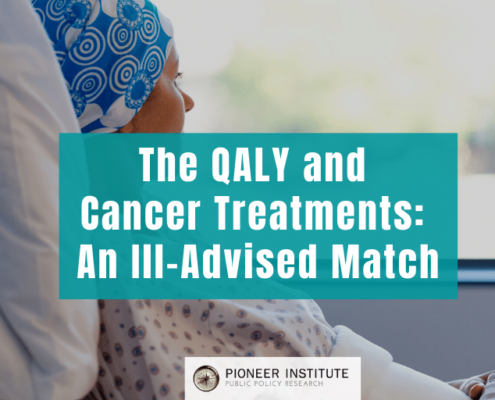Cures for Patients, Not Health Plan Profits, Make Drugs Valuable
To the astonishment of many observers, the Institute for Clinical and Economic Review (ICER) recently concluded that a $2.1 million gene therapy for a life-threatening blood disorder called beta thalassemia, is priced cost-effectively. The surprise was especially pleasant, given that ICER’s methodology had, in the past, displayed bias against rare disease treatments and undervalued the lives of people living with disabilities.
Before we start assuming that ICER – an entity that holds sway with healthcare insurers – has begun putting patient well-being ahead of costs, it’s worth reading the fine print in this recent report and the troubling precedent it sets for so many other patients with extraordinary health challenges.
The possibility of having the first-ever gene therapy for beta thalassemia is a godsend for patients facing a painful and likely shortened life. This vicious genetic disease includes symptoms such as life-threatening anemia, swelling of the heart, liver and spleen, and brittle, deformed bones. The conventional treatment is chronic, regular blood transfusions, which can also generate severe allergic reactions. The costs associated with managing beta thalassemia are immense.
Despite ICER’s welcome conclusion about the cost effectiveness of this new gene therapy, the logic of the ICER report gives pause. ICER concluded that $2.1 million for the beta thalassemia gene therapy is justifiable because it would save money for health insurers who would no longer have to foot the bill for continued blood transfusions and frequent hospitalizations. In ICER’s own words, “given the high annual costs of standard care, traditional cost-effectiveness modeling finds that this new treatment meets commonly accepted value thresholds…”
What goes unsaid is that there are thousands of diseases that are lacking in cures and just as debilitating, yet come with comparably low cost to insurers, but high costs to the families of patients. In fact, across all rare diseases, these non-insurer, indirect costs are greater than what insurers pay, according to the EveryLife Foundation for Rare Diseases. The expenses come in the form of home modifications, in-home health aids, and loss of income from reduced work hours due to caregiving, to name just a few.
I explored this dynamic in a recent report on ICER and cancer care, finding that, on average, a typical caregiver for a cancer patient provides a staggering 32.9 hours of care per week. This takes a huge toll on these caregivers, resulting in very high rates of depression, anxiety, and insomnia. You could expect that assessments of the value of a therapy that ameliorates the tremendous burden on caregivers would reflect this significant benefit. Yet, ICER does not include ‘indirect’ benefits in their value assessments.
According to ICER’s logic, many new treatments will only be deemed cost effective if health insurers benefit. No matter how much the treatments may transform a patient’s life, mend shattered families, or prevent financial hardship, ICER’s green eyeshades focus on the balance sheets of health insurers, not on the benefits to patients.
ICER’s inordinate focus on health plan profits leads to two troubling results. First, ICER may fail to recommend patient access to treatments that don’t show up on the plus side of health plans’ balance sheets, but which would help patients and their families enormously.
Second, ICER’s logic may lead investors to walk away from rare disease companies, thinking that health insurance companies, on ICER’s advice, will not pay for new treatments. Currently many of the 1,200 medicines for rare disease (non-cancer) therapies in the pipeline are being brought to market by small companies, which depend on venture capital to finance their research. ICER’s narrow support for only certain rare disease treatments makes those venture investments look less attractive. We should not shift the scope of research and development away from addressing unmet medical needs and only to treatments that can generate profits for health insurance companies.
You cannot blame the patient community for initially being heartened to see ICER’s assessment for the beta thalassemia gene therapy. After all, it could allow one important group of patients to access a breakthrough gene therapy. But if we accept the underlying rationale that resulted in this positive development for one disease, we risk perpetuating patient suffering for thousands of others.
William S. Smith, PhD, is Senior Fellow and Director, Life Sciences Initiative at Pioneer Institute in Boston
Get Updates On Our Life Sciences Work!
Related Posts:











